
Bayeux is a commune in the Calvados department in Normandy in northwestern France.
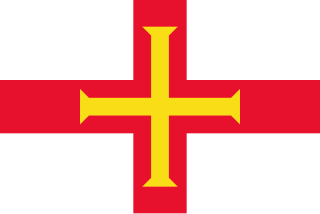
The Bailiwick of Guernsey is a self-governing British Crown Dependency off the coast of Normandy, France, comprising several of the Channel Islands. It has a total land area of 78 square kilometres (30 sq mi) and an estimated total population of 67,334.
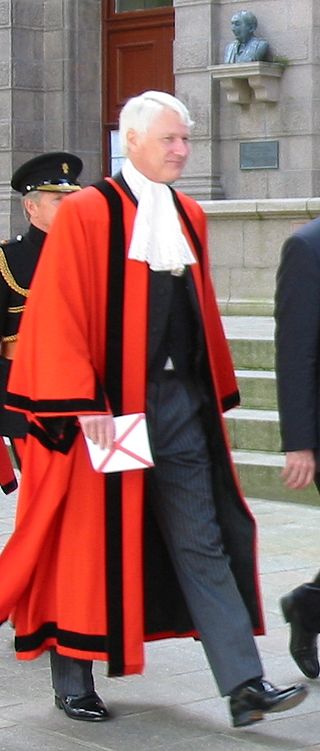
The Bailiff of Jersey is the civic head of the Bailiwick of Jersey. In this role, he is not the head of government nor the head of state, but the chief justice of Jersey and presiding officer of Jersey's parliament, the States Assembly. The Bailiff is also the President of the Royal Court. It is similar in role to the Bailiff of Guernsey.
The Matter of France, also known as the Carolingian cycle, is a body of literature and legendary material associated with the history of France, in particular involving Charlemagne and his associates. The cycle springs from the Old French chansons de geste, and was later adapted into a variety of art forms, including Renaissance epics and operas. Together with the Matter of Britain, which concerned King Arthur, and the Matter of Rome, comprising material derived from and inspired by classical mythology, it was one of the great European literary cycles that figured repeatedly in medieval literature.
The Symphony No. 14 in G minor, Op. 135, by Dmitri Shostakovich was completed in the spring of 1969, and was premiered later that year. It is a work for soprano, bass and a small string orchestra with percussion, consisting of eleven linked settings of poems by four authors. Most of the poems deal with the theme of death, particularly that of unjust or early death. They were set in Russian, although two other versions of the work exist with the texts all back-translated from Russian either into their original languages or into German. The symphony is dedicated to Benjamin Britten.

"Baa, Baa, Black Sheep" is an English nursery rhyme, the earliest printed version of which dates from around 1744. The words have barely changed in two and a half centuries. It is sung to a variant of the 18th century French melody Ah! vous dirai-je, maman.

The 1974 Belgian Grand Prix was a Formula One motor race held at Nivelles on 12 May 1974. It was race 5 of 15 in both the 1974 World Championship of Drivers and the 1974 International Cup for Formula One Manufacturers. The 85-lap race was won by Brazilian driver Emerson Fittipaldi, driving a McLaren-Ford, with Austrian Niki Lauda a close second in a Ferrari and South African Jody Scheckter third in a Tyrrell-Ford. This race also marked the debut of Tom Pryce, making his first start for the newly formed Token team.

The Mark of Zorro is a 1974 American Western television film which stars Frank Langella alongside Gilbert Roland, Yvonne De Carlo, Anne Archer, Ricardo Montalbán and Robert Middleton.
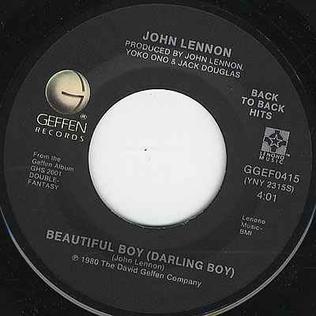
"Beautiful Boy (Darling Boy)" is a song written and performed by John Lennon. It was released on the 1980 album Double Fantasy, the last album by Lennon and Ono released before his death.

Tonnerre is a commune in the Yonne department in Bourgogne-Franche-Comté in north-central France.

Evan Olav Ross-Næss is an American actor and musician. He made his acting debut in the comedy-drama film ATL (2006), and has since starred in the films Pride (2007), According to Greta (2009), Mooz-lum (2010), 96 Minutes (2011), Supremacy (2014), and The Hunger Games: Mockingjay – Part 1 (2014) and Part 2 (2015).
Dennis Noble was a noted British baritone and teacher. He appeared in opera, oratorio, musical comedy and song, from the First World War through to the late 1950s. He was renowned for his enunciation and diction. He became the most prolific radio broadcaster of his time.

Sunshine Heartbeat is a 2004 Hong Kong television series. The story centres on volleyball and high school.
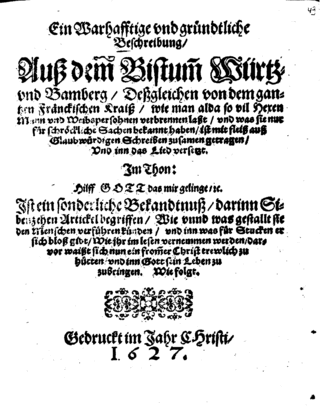
The Würzburg witch trials of 1625–1631, which took place in the self-governing Catholic Prince-Bishopric of Würzburg in the Holy Roman Empire in present-day Germany, formed one of the biggest mass trials and mass executions ever seen in Europe, and one of the largest witch trials in history.
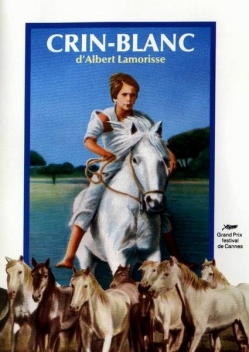
White Mane is a 1953 short film directed by French filmmaker Albert Lamorisse. It is based on a children's book with the same name by the French author René Guillot.
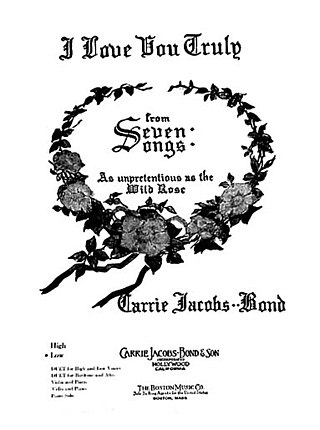
"I Love You Truly" is a parlor song written by Carrie Jacobs-Bond. Since its publication in 1901 it has been sung at weddings, recorded by numerous artists over many decades, and heard on film and television.
Antoine-Alexis Cadet de Vaux (1743–1828) was a French chemist and pharmacist.

Belle and Sebastian is a 2013 French adventure drama film directed by Nicolas Vanier. It was based on the 1966 French novel Belle et Sébastien by Cécile Aubry, which in turn was based on the 1965 French TV series. The film was the first of a trilogy, as the second film adventure Belle & Sebastian: The Adventure Continues, was released on 9 December 2015, with the final film being Belle and Sebastien: Friends for Life, released in 2018.
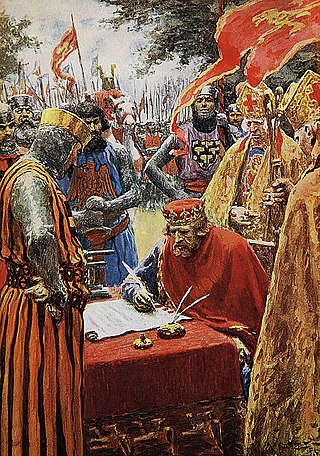
The Bailiwick of Jersey has an unwritten constitution arising from the Treaty of Paris (1259). When Henry III and the King of France came to terms over the Duchy of Normandy, the Norman mainland the suzerainty of the King of France. The Channel Islands however remained loyal to the British crown due to the loyalties of its Seigneurs. But they were never absorbed into the Kingdom of England by any Act of Union and exist as "peculiars of the Crown".

Jean II de Montmorency, held the office of Grand Chamberlain of France. He was the eldest son of Jacques de Montmorency and Lady Philippine de Melun of Croisilles and Courrières, daughter of Hugues de Melun d'Epinoy.

















